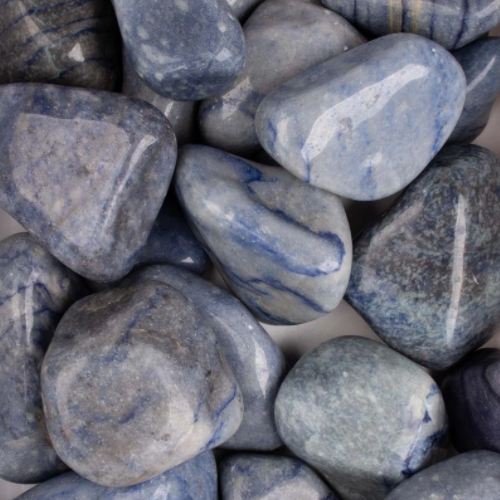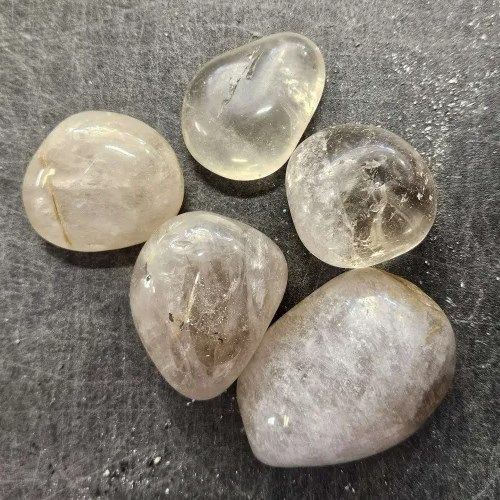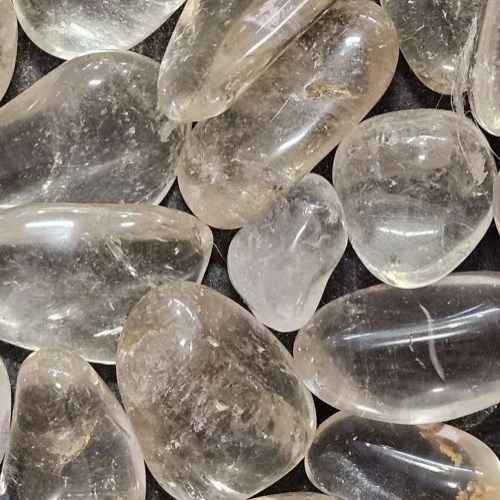Product Description
Quartz Tangerine Tumbled Stone 1"-2"
Mineral Information:
Tangerine quartz is a variety of quartz crystal that exhibits a distinct orange color. It is named after the citrus fruit "tangerine" due to its vibrant orange hue. Tangerine quartz is highly sought after for its energetic properties and unique appearance. Here are some key features and characteristics of tangerine quartz:
Color: Tangerine quartz displays a range of orange shades, resembling the color of ripe tangerines or mandarin oranges. The color can vary from pale orange to deep, intense orange tones. The presence of iron oxide and other trace minerals within the quartz crystal structure contributes to the orange coloration.
Transparency: Tangerine quartz is typically transparent to translucent, allowing light to pass through the crystal. The level of transparency can vary from specimen to specimen.
Clarity: Tangerine quartz can range from clear to slightly cloudy or included. Some specimens may contain natural inclusions or internal veils, which can add to their unique appearance.
Luster: Tangerine quartz exhibits a vitreous or glassy luster when polished, giving it a shiny and reflective surface.
Origin: Tangerine quartz can be found in various locations around the world, including Brazil, Madagascar, and the United States. Each locality may have slight variations in color and appearance.
Metaphysical Meaning:
Tangerine quartz is believed to possess metaphysical properties and is often associated with creativity, joy, and manifestation. It is thought to activate and stimulate the sacral chakra, which is associated with emotional balance, passion, and creativity. Tangerine quartz is believed to enhance feelings of joy, enthusiasm, and self-expression.
Mineral Care:
Tangerine quartz, like other varieties of quartz, is generally considered to be a relatively durable and tough mineral. However, it is not entirely immune to damage, and some factors can affect its fragility. Here are a few considerations regarding the fragility of tangerine quartz:
-
Hardness: Tangerine quartz has a hardness of 7 on the Mohs scale, which means it is relatively hard and can withstand normal wear and tear. Its hardness makes it resistant to scratching by most common objects. However, it is important to note that even though tangerine quartz is relatively hard, it can still be scratched by materials with a higher hardness, such as corundum (including sapphires and rubies) or diamond. Therefore, it is best to avoid contact with harder substances to prevent scratches.
-
Inclusions and Fractures: Tangerine quartz crystals may contain natural inclusions or internal veils, which can add to their unique appearance. While these inclusions are often a desirable feature, they may introduce areas of weakness. Inclusions and fractures within tangerine quartz can make it more susceptible to breakage if subjected to excessive pressure or impact. It is advisable to handle tangerine quartz with care to avoid accidental damage to fragile areas or inclusions.
-
Cleavage and Fracture: Quartz, including tangerine quartz, does not exhibit cleavage, which refers to the tendency of a mineral to break along planes of weakness. Instead, quartz has a conchoidal fracture, meaning it breaks with smooth, curved surfaces similar to the shape of a shell. This fracture type is generally more resistant to breakage than minerals with prominent cleavage planes. However, it is still possible for tangerine quartz to fracture or chip if subjected to significant impact or pressure, particularly if there are pre-existing internal flaws or structural weaknesses.
-
Sensitivity to Temperature: While quartz is generally resistant to temperature changes, extreme thermal shocks can potentially cause damage to tangerine quartz. Rapid temperature fluctuations, such as immersing a hot crystal in cold water or vice versa, can create stress within the crystal and lead to cracks or fractures. It is best to allow tangerine quartz to cool or warm up gradually to minimize the risk of thermal stress.
In general, tangerine quartz is a relatively durable mineral that can withstand regular handling. However, to maintain its beauty and integrity, it is advisable to handle it with care, avoid contact with harder materials, and store it separately from other gemstones or jewelry items to prevent scratching or potential damage.
Disclaimer:
No information here is intended to diagnose, treat or cure ailments or afflictions of any kind. One should always consult a medical professional if a serious issue presents itself.










